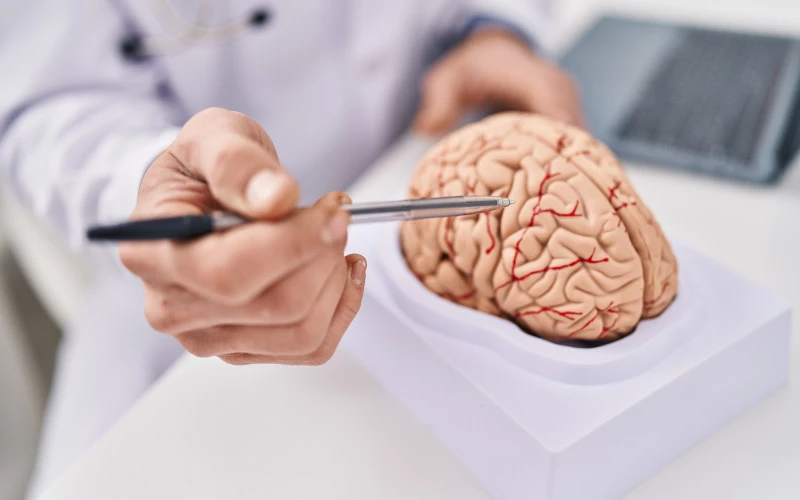Experience Lasting Adjustment with the Best Psychologist in Delhi: Right here's How
Experience Lasting Adjustment with the Best Psychologist in Delhi: Right here's How
Blog Article
Psych Therapy: A Comprehensive Guide to End Results and techniques

Cognitive-Behavioral Treatment
Cognitive-Behavioral Treatment (CBT) is an extensively utilized psychotherapeutic approach that concentrates on determining and modifying inefficient reasoning and actions patterns. Developed in the 1960s by Aaron T. Beck, CBT integrates cognitive and behavior concepts to address various mental health and wellness concerns, consisting of depression, anxiety, and stress-related conditions.
Techniques such as cognitive restructuring, direct exposure treatment, and skill-building workouts are frequently used. Cognitive restructuring includes tough and modifying negative idea patterns, while direct exposure therapy intends to minimize concern and anxiousness via steady direct exposure to been afraid scenarios or things.
Evidence-based research supports the efficacy of CBT for a wide variety of emotional conditions - Best Psychologist in Delhi. Its focus on skill acquisition and self-help methods equips clients to continue development individually after treatment wraps up. The versatility and efficiency of CBT have made it a cornerstone in modern psychotherapeutic method
Psychodynamic Methods
Rooted in the early theories of Sigmund Freud, psychodynamic approaches focus on discovering the unconscious mind and its influence on actions and emotions. These techniques intend to reveal concealed ideas and sensations that may be driving maladaptive actions and emotional distress. Central to this approach is the idea of internal problem, frequently originating from unresolved previous experiences, especially those from childhood.
Therapists utilizing psychodynamic methods employ a number of key approaches, consisting of free association, where patients are motivated to talk openly to disclose unconscious material, and desire analysis, which translates the unexposed material of desires. Furthermore, the expedition of transference and countertransference dynamics within the healing connection is important. These interactions can supply understandings into the client's internal world and relational patterns.
Psychodynamic treatment is typically longer-term contrasted to various other techniques, supplying a deep and extensive understanding of the person's mind. Research study shows that it can be particularly effective for complicated psychological wellness problems, such as individuality disorders and persistent anxiety. By fostering self-awareness and psychological understanding, psychodynamic treatment seeks to bring unconscious product to consciousness, allowing people to accomplish purposeful and lasting change in their lives.
Humanistic Strategies
Building on the foundations laid by psychodynamic approaches, humanistic strategies offer a distinctive viewpoint focused on specific potential and self-actualization. Coming from the mid-20th century, these methods focus on the integral goodness and growth potential of people, highlighting a holistic view of human experience. Trick numbers such as Carl Rogers and Abraham Maslow have substantially affected this therapeutic method, which incorporates methods like client-centered therapy and Gestalt therapy.
Client-centered treatment, established by Rogers, plays a pivotal role in humanistic strategies. It counts on the therapist giving an atmosphere of unconditional positive respect, compassion, and harmony. This cultivates a secure room for clients to discover their sensations and experiences without judgment, promoting self-discovery and personal growth. The specialist's role is even more of a facilitator than an authority, motivating customers to harness their internal resources for recovery.
Gestalt treatment, another vital humanistic technique, stresses present moment understanding and the combination of body and mind. By concentrating on the "here and currently," clients obtain higher insight right into their current emotions and actions. Strategies such as role-playing and directed visualization are frequently used to aid customers gain a much deeper understanding of themselves, ultimately causing enhanced self-awareness and gratification.
Integrative Treatments
Integrative therapies represent a synthesis of different therapeutic techniques customized to satisfy the distinct demands of each client. This method acknowledges the complexity of human psychology and the complex nature of mental wellness concerns. By integrating aspects from different institutions of psychiatric therapy-- such as try here cognitive-behavioral therapy (CBT), psychodynamic therapy, and humanistic techniques-- integrative treatments use a more flexible and holistic treatment standard.
Professionals of integrative treatment evaluate each client's specific requirements, signs and symptoms, and individual background to design a personalized treatment strategy. This personalized strategy boosts the potential for healing success by dealing with the source of mental distress and promoting total health. Techniques might include mindfulness workouts, cognitive restructuring, and psychological handling, each selected to target various aspects of the client's concerns.
In addition, integrative therapies highlight the therapeutic connection, watching the client-therapist bond as a vital component of efficient therapy. This relationship promotes a helpful setting where clients really feel risk-free to discover and address their concerns. The adaptability of integrative therapies makes them ideal for a broad series of conditions, consisting of stress and anxiety, depression, trauma, and social problems, consequently boosting their applicability and efficiency in diverse professional settings.

Determining Treatment Results
Examining the performance of psychotherapy is important for both clinicians and customers to guarantee that the therapy is yielding the desired outcomes. To achieve this, numerous approaches and devices are utilized to gauge therapy outcomes methodically. Standard evaluation instruments, such as the Beck Depression Stock (BDI) and the Generalized Anxiety Condition 7 (GAD-7), give quantitative information on signs and symptom seriousness and adjustments gradually.
In addition to standardized devices, qualitative techniques like client self-reports and clinical meetings use important insights right into the individual experiences and regarded progress of clients. Consistently set up evaluations, generally at the beginning, middle, and end of treatment, help in tracking the trajectory of renovation or determining areas needing change.
End result dimension is not limited to sign decrease; it additionally incorporates functional enhancements in day-to-day life, such as much better social connections, increased work efficiency, and boosted general well-being. Modern improvements in electronic wellness have actually introduced mobile applications and on the internet systems that promote real-time surveillance and responses, better refining the analysis procedure.
Eventually, a thorough approach to measuring therapy results makes sure that restorative interventions work, effective, and customized to meet the individual demands of customers, consequently maximizing the general restorative experience.
Conclusion
Humanistic strategies concentrate on individual growth and self-actualization, while integrative treatments combine numerous approaches for customized therapy plans. Examining therapy end results through qualitative methods and standard assessments guarantees a detailed understanding of efficiency, inevitably directing customers toward sustaining mental health and wellness renovations.
From the structured method of Cognitive-Behavioral Therapy (CBT) to the deep exploration of the unconscious in psychodynamic treatment, each technique brings special advantages. Its focus on ability acquisition and self-help methods encourages site customers to proceed progression independently after therapy wraps up (Best Psychologist in Delhi). Secret figures such as Carl Rogers and Abraham Maslow have actually substantially influenced this therapeutic technique, which includes techniques like client-centered therapy and Gestalt therapy

Report this page